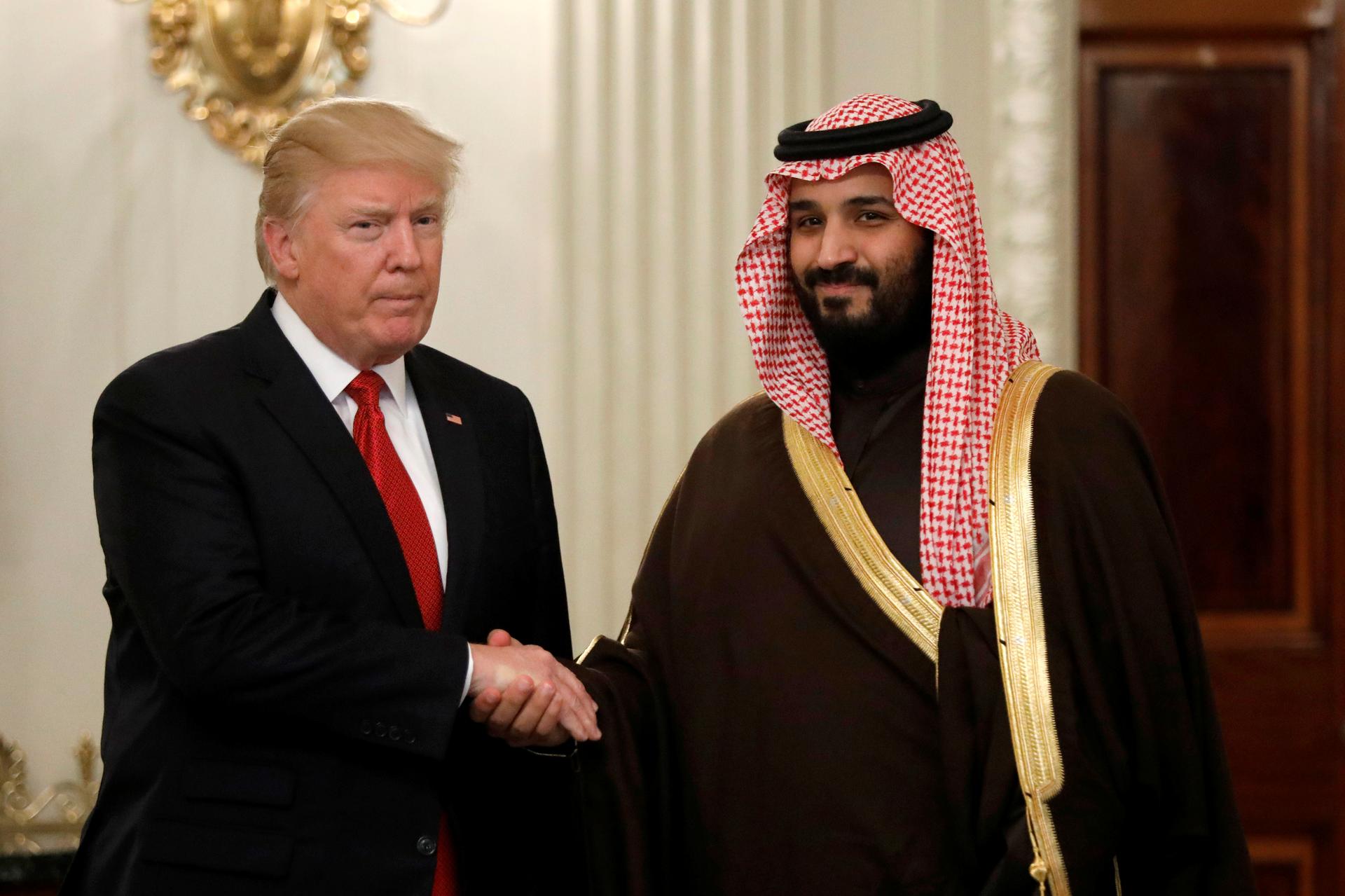White House seen to be ‘hands off’ as Saudi crown prince grabs more power
US President Donald Trump and Mohammad bin Salman, who was deputy crown prince and is now the crown prince of Saudi Arabia, meeting at the White House in Washington, March 14, 2017.
High-profile arrests of prominent Saudis over the weekend indicate that the kingdom's crown prince is consolidating his power. And that may be just fine with the White House.
Secretary of State Rex Tilllerson visited Saudi Arabia on October 22. A week later, President Trump's son-in-law and Middle East advisor Jared Kushner arrived in Riyadh for a low profile visit of his own. And on Sunday, President Donald Trump spoke with Mohammad bin Salman's father, the Saudi king.
Related: Saudi Arabia arrests dozens of princes, officials and a top business tycoon
Given the close attention it has paid to the Saudi leadership recently, the Trump Administration may have been prepared for the Saudi crown prince's demonstration of power, which included jailing prominent Saudis and bring the Saudi National Guard under his personal control.
Dozens of high-profile Saudi political and business figures were arrested over the weekend in a corruption drive that is also being seen as a political purge.
"I'd say the Trump administration seems quite content to let Saudi Arabia play out its problems on its own," says journalist Krishnadev Calamur. "You've had conflict in Yemen where Saudi Arabia is engaged in a proxy war with Iran and it seems fairly intractable. You also have the standoff with Qatar, which doesn't seem to end, despite diplomatic efforts, including by Rex Tillerson. And you have the current crackdown on the princes in Saudi Arabia. The Trump administration hasn't really commented on any of these things in a public way."
In a presidential Tweet and a readout from the White House over the weekend President Trump was all business, expressing his hope that the Saudis would list Saudi Aramco, their state-run oil company, on the New York Stock Exchange.
"He believed that would be very good for New York," notes Calamur, a senior editor at The Atlantic, "and he thanked Saudi Arabia for buying THAAD missile interceptors at a cost of, I believe, $10 or $15 billion."
Saudi Arabia is the largest foreign customer of US weapons systems. And so far, changes in Saudi leadership have not disrupted the oil and defense deals at the heart of the US/Saudi relationship.
"I think as long as those relationships are maintained — and in the president's view they bring jobs to the US — he's quite happy to let them do what they want," says Calamur, "because one of his principles has been that other countries are sovereign and they get to do what they want to do. And this may fit into that world view."
Our coverage reaches millions each week, but only a small fraction of listeners contribute to sustain our program. We still need 224 more people to donate $100 or $10/monthly to unlock our $67,000 match. Will you help us get there today?
